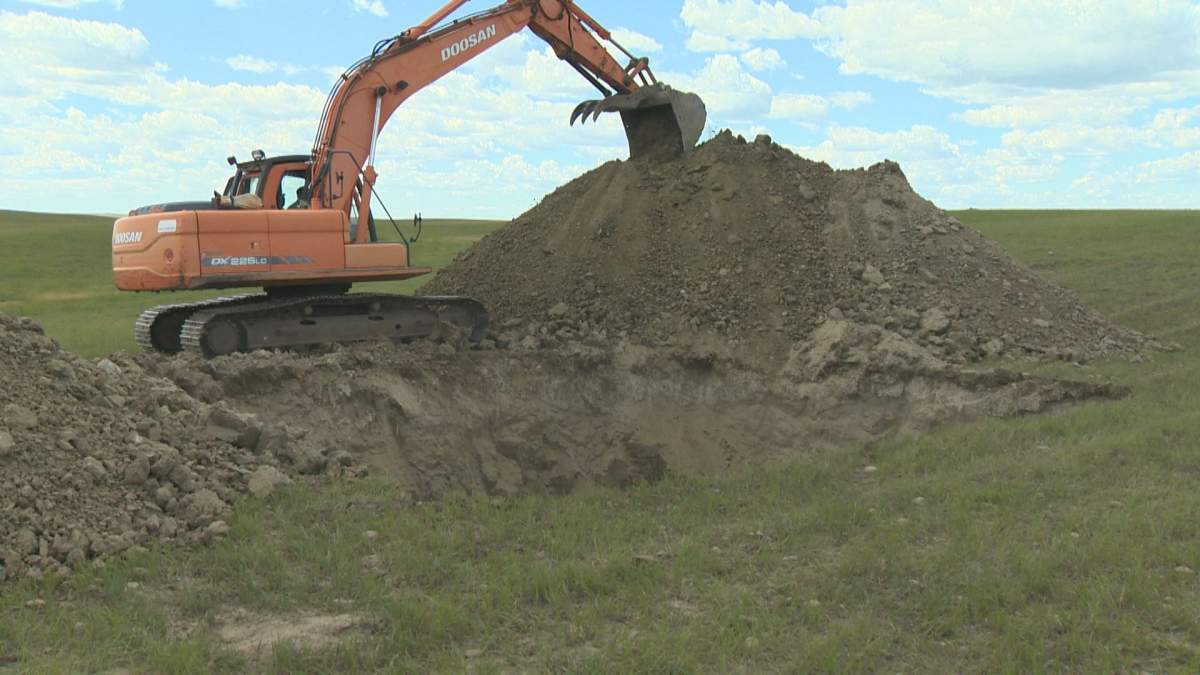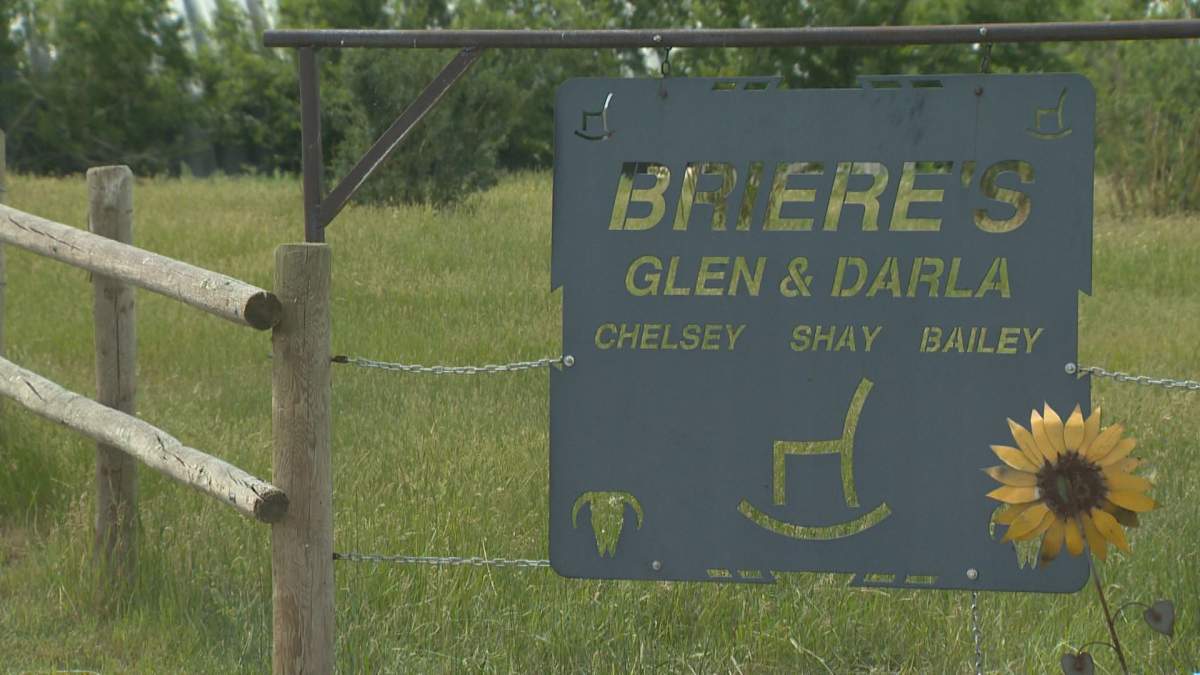The emotion was audible in Glen Briere’s voice as he spoke to Global News about losing nearly a fifth of his cattle herd to a weekend storm.

“It’s kind of, um, I guess a disaster – what we had here the other night,” Briere said, pausing to wipe away the tears welling up behind his sunglasses.
“It takes a lot of years to get your cattle herd built to where you want it. And one day you come and find this out here – 14 cows, 13 calves, and one bull (killed) in a lightning storm.”
The fourth-generation farmer’s southwest Saskatchewan pasture swayed gently beneath beaming blue skies Monday. He told Global News the scene at his Mankota-area ranch was far less serene Friday night.
“My son was sending me Snapchats. The wind was crazy and the lightning was unreal,” he said of the storm. He said he was away in Wood Mountain when the weather hit. “It was quite a lightning show according to what my son said.”
It wasn’t until Sunday morning, though, when his brother-in-law discovered 28 of his animals had died in the maelstrom, scattered along roughly 570 feet of barbed-wire fence. Briere said the wind from the storm had likely pushed the cattle up along the fence when lightning struck.
He said 10 of the calves were bulls, destined for the Briere family’s bull sale which takes place annually in March.
“Every mother in here should have had a new baby growing inside of them,” he said, referring to the dead livestock. “That’ll be another kick to us. Some of our top cows are laying here.”

Get daily National news
Briere said the bull calves fetch around $5,000 on average. The top-end cows can be worth as much as $8,000. In total, he estimates the value of the loss in the range of $80,000 to $100,000.

“I remember my grandpa living here, my dad and me. I could count on one hand how many cattle I’ve seen die from lightning,” he said.
“It’ll affect us for a couple of years.”
On the other side of a nearby hill where the “lucky ones,” as Briere calls them, are gathered, a mother called out for a calf that will never return.
Some calves, meanwhile, roamed the grasses looking for mothers that will never feed them again.
Briere said the orphaned calves likely won’t grow as much as they would have, adding to the loss.
Only the bull was insured, Briere said, since insuring the entire herd would be too costly.
“That’s probably the only one we’re going to get any money out of,” he said. “I guess I just never thought of insuring all of my cows or of this ever happening to us.”
Briere’s son Shay, who plans to one day take over the business, was at work Monday afternoon digging holes to bury the dead animals.
“It’s heartbreaking and devastating. You come over the hill and see this. It’s not something you want to see,” Shay said.
“In the winter when it’s -30 you’re out there trying to save these calves. You do whatever it takes for them so they can grow up and we can sell them in our bull sale.”
Still, despite the overwhelming tragedy, the Brieres are confident they’ll make it through the hardship.
Glen said the loss could have been even worse, had more of the 80 pairs of cows and calves been in the area when the lightning struck.
He said his family members’ phones have been buzzing off the hook with friends and neighbours asking what they can do to help, and a donation account has been set up.
“We had to have our local vet come out to see our insured bull and she told me it was 25 years ago when she last saw something like this. She thought she’d never witness it again, but yesterday she did,” he said.
“At the end of the year we’re going to be short. But we’ll bounce back. We’re tough Saskatchewan people.”













Comments
Want to discuss? Please read our Commenting Policy first.